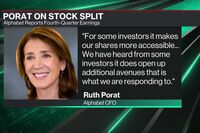How to Master Retail Trading
What You Need To Know
By now, you’ve heard the stories. A 36-year-old sells GameStop Corp. stock at just the right time and pockets enough cash to pay off his student loans. A banker makes so much money investing in Dogecoin that he quits his job. Day traders predict that pandemic news will hurt airlines and quickly buy up travel stocks, which bottom out for a few days — but then jump right back up in value.
Ever feel like you’re missing out? No one can guarantee profits. Markets of late have been at their worst levels in months. Amateur mistakes are common. And mainstream financial advisers say to exercise extreme caution when it comes to day trading or trying to time the market — in meme stocks or, quite frankly, any stocks. They recommend taking these seven steps first before you even think about stock picking.
But the retail trading of stocks, cryptocurrency and other “meme” assets has undeniably boomed over the past two years. Brokerage firm Robinhood Markets Inc. now has 22 million users. Cryptocurrency exchange Coinbase counted 73 million as of last September. And the WallStreetBets Reddit group, where many of the hottest meme stocks were born, is now 11.5 million strong.
With numbers like that — along with the fact that trading is now easier than ever and can be completely free — what would it take for you to dip a toe in? Scroll down to find out how to do it and subscribe to this storythread for all the latest on retail trading.
Key Coverage
By The Numbers
- 18.5% of stock trades are made by retail investors, according to Bloomberg Intelligence
- $3,500 average balance in a Robinhood account
- 55% of Bitcoin owners began investing in the past 12 months, according to a survey from Grayscale Investments
Why It Matters
Your Step-by-Step Guide:
How to get started: First, study up. In a hot market, scammers abound. They know new entrants want to put money in the market and are willing to take it from the careless. Be sure you’re putting your money in a brokerage that is regulated by your country’s relevant financial authorities. In the U.S., that’s the Securities and Exchange Commission. In the U.K., it’s the Financial Conduct Authority. Once you’ve identified your region’s safe options, think about what type of investor you want to be and what features you want from a platform.
Some may be simpler, intended more for the beginner or casual investor. Others have features that can allow you to function much more like a professional trader — but these may require more of your time to master and use. Importantly, be mindful of fees. Basic free trading has taken over the U.S. brokerage industry — Robinhood, Charles Schwab, TD Ameritrade, and E*Trade have all rolled out zero-fee trading — but there are still costs for some types of trades.
Crypto’s growing role: It’s not just about stocks. Retail investors have also flocked to crypto, and trading platforms are paying attention. Robinhood and rival eToro offer both stock and crypto trading. Meanwhile, crypto platforms FTX US and Bitstamp Ltd. are exploring offering equities trading. Here’s a guide to buying Bitcoin for the first time.
The skinny on ETFs: For those who don’t want to make bets on specific stocks, exchange-traded funds or mutual funds can be a good alternative. Available on all the major brokerage platforms, these are essentially baskets of stocks or bonds that are considered less risky because they spread out money among many different securities. Retail traders especially favor exchange-traded funds because they are often cheaper and require less cash to get started. Investors are now putting more money into ETFs than ever before, and there’s even an ETF to invest in the price of Bitcoin — although it’s pricey and you may be better off just buying Bitcoin.
Some track broad-based indexes like the S&P 500. But others have a fund manager behind the scenes. That’s the case with funds from Cathie Wood’s Ark Investment Management as well as Ross Gerber and Ryan Jacob. The downside is that these products are usually more expensive, and have fewer securities, which increases the risk that a few bad performers could drag down the fund’s price.
Remember the taxman: Lucky enough to make some money off your investments? The sad reality is that you’re going to get hit with a tax bill. The amount will depend on whether you’ve held the investment for a year or more. Short-term capital gains — from, say, buying a stock in March and selling it in November — will be taxed like ordinary income, with the highest federal rate in the U.S. at 37%. Hold it for more than a year, and you’ll pay a reduced rate on those profits. That’s why experts say it’s important to consider when you’ll need back the money that you’re investing.
Lawmakers are pushing crypto brokers to report more transactions to the Internal Revenue Service. But some argue that clearer rules could actually make trading crypto easier — for law-abiding citizens.
Mind these risks: The risk with all of this, of course, is losing money. Even broad indexes like the S&P 500 can drop dramatically, like when the Covid pandemic first started. And investments that did well in the past may not necessarily post big gains in the future. Just look at the jolt that some of Cathie Wood’s funds got. Cryptocurrencies in particular are notorious for their volatility, and meme stocks like AMC and GameStop that post wild rallies can experience equally sharp falls. For the most risky investments, experts recommended not betting any more money than you’re prepared to lose. And for your overall portfolio, diversification is key.
The online broker’s shares have tumbled 80% from their peak, but its 22 million users are worth something, even if the average account balance is only $3,500.

















